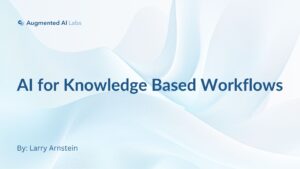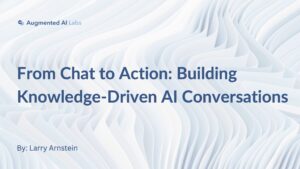Artificial intelligence (AI) has advanced rapidly in recent years. With technologies like machine learning and neural networks transforming capabilities across industries. Systems can now perform complex tasks from language translation to medical diagnosis to generating original art and content. AI promises immense economic opportunities – some estimate the value derived from AI will reach $15.7 trillion globally by 2030.
However, the quickening pace of development has raised pressing questions about appropriate safeguards. Systems like generative AI can spread misinformation or perpetuate biases if deployed recklessly. More broadly, a lack of accountability as AI permeates high-stakes sectors could erode public trust. Policymakers now face complex decisions on fostering AI innovation versus mitigating emerging risks.
"Systems like generative AI can spread misinformation or perpetuate biases if deployed recklessly."
Innovation vs Safety Dilemma
Many experts have highlighted this central tension between accelerating AI capabilities for economic growth while ensuring appropriate governance so that AI remains safe and trustworthy. Overly lax approaches leave room for harms; overly strict policies risk constraining progress.
The key is striking the right balance – putting in place flexible and nuanced regulations that empower innovation, while also providing enough oversight across sectors to address pitfalls proactively. This requires policy frameworks to evolve enough to respond to AI’s rapid changes and unique challenges.
With AI poised to transform economies and societies over the coming decade, resolving this innovation versus safety dilemma will shape trajectories enormously. This article analyzes views across the spectrum, providing recommendations for a balanced regulatory approach, and calls for informed public debate to build consensus going forward.
"With AI poised to transform economies and societies over the coming decade, resolving this innovation versus safety dilemma will shape trajectories enormously"
The Power of AI Acceleration
The quickening pace of AI advancement is often referred to as AI acceleration. This encompasses technological milestones that significantly expand capabilities, as well as increasing private investments and governmental initiatives to rapidly scale AI adoption.
Analysts highlight how AI acceleration has become key for global competitiveness and growth. Chinese governmental plans aim to make China an “AI superpower” with a $1 trillion AI industry by 2030. The U.S. passed the CHIPS and Science Act, investing almost $200 billion in domestic tech innovation including AI chip research. Reports estimate every dollar invested in AI yields $3-20 in economic value added.
Beyond direct growth, AI enhances efficiencies and unlocks innovations across sectors. For instance, generative AI is already assisting researchers in disciplines from drug discovery to materials science. In healthcare, AI shows promise in improving patient outcomes through earlier diagnosis or optimized treatment plans. The impacts will compound as capabilities grow more powerful.
Case Studies: Realized Benefits
Prominent examples showcase how AI acceleration drives immense value, often through building novel data/prediction capabilities:
- Autonomous vehicles can analyze real-time video and sensor feeds to navigate environments safely. Companies like Waymo and Cruise are now testing self-driving taxi services.
- Machine learning helps e-commerce and social media platforms curate personalized content and product recommendations by analyzing consumer preferences and behavior. This provides better user experiences.
- AI in finance can detect fraudulent transactions rapidly or provide more accurate risk assessments when issuing loans. For instance, Upstart uses over 1,500 data points per application for credit decisions.
The Flip Side: Risks and Challenges of Unregulated AI
While economic upsides make acceleration alluring, unchecked advancement and deployment of AI pose significant downsides as well, especially if governance and accountability do not keep pace.
“AI safety” refers to developing and utilizing AI responsibly by proactively assessing and addressing risks of harm. It covers technical aspects like the security or robustness of systems, as well as broader societal challenges related to bias, accountability, and strategic impacts. Safety is a prerequisite for reliably beneficial applications.
Already, problematic cases have emerged that provide previews of potential damages from deploying AI without enough safeguards:
- Bias and unfair outcomes: Algorithms trained on skewed data have produced discriminatory results. Such as in healthcare risk assessments or hiring tools that disadvantaged certain people groups.
- Privacy breaches: Collection of sensitive personal data for training AI models has led to exposures, like in the recent Clearview AI case.
- Lack of accountability: When AI systems fail, ambiguous accountability makes it difficult to remedy issues. Such as deaths linked to Tesla's autopilot driving technology.
- Strategic threats: Advanced AI could be weaponized by malicious actors or nations to cause catastrophic harm, especially as capabilities like autonomous drones emerge.
Without enough oversight and control measures tailored to AI’s evolving landscape, the scale of such damages will grow exponentially. Especially as adoption accelerates across high-impact industries and applications. The associated erosion of public trust could dampen the realization of potential benefits significantly as well.
Global Regulation Trends:
Many governments have recognized risks accompanying AI advances. Progress on comprehensive policies differs across regions:
- -The EU is debating landmark AI regulations focused on a risk-based approach, with tighter requirements for high-risk use cases. Fines for non-compliance go up to 6% of global turnover.
- The U.S. has called for voluntary AI risk management frameworks. However sectoral laws are emerging in areas like self-driving vehicles and medical devices using AI.
- China last year introduced a formal governance framework for "trustworthy AI" and standards around data and algorithmic accountability.
While debates continue on specific policy mechanisms, experts widely agree that a balanced approach is needed to promote AI safety while enabling transformative positive potential.
A dual-track focus on advancing AI capabilities through research and adoption while prioritizing complementary progress on safety is crucial. Investing a portion of growing R&D budgets into safety-related breakthroughs would allow matching governance capabilities alongside expanding technical prowess.
Policy Recommendations:
Regulatory frameworks will likely need to be periodically reassessed and updated as AI systems grow more advanced. However, some promising directions for near-term policy include:
- Classifying AI use cases through a tiered risk framework, with tighter control for high-stakes sectors like healthcare or transport
- Requiring impact assessments before deployment and ongoing monitoring through tools like AI audits
- Incentivizing safety practices by making them prerequisites for public sector AI contracts
- Promoting transparency and accountability through measures like requiring human oversight over high-risk AI systems
Such interventions can balance safety with flexibility for innovation in lower-risk applications.
Role of Public-Private Partnerships
Finally, effective policy will require coordination between governments, companies building AI solutions, as well as civil society voices. Multi-stakeholder collaborations through bodies focused on AI ethics and governance will be key to responsive, evidence-based frameworks that earn wide support. Initiatives like the OECD Network of Experts on AI have laid promising foundations in this direction already.
As this exploration highlights, the AI landscape involves delicate balancing. With care, expertise, and responsibility guiding research priorities, policy developments, and application choices, transformative benefits can be realized broadly while risks are proactively mitigated.
This will require informed debate and creative regulatory solutions that enable AI’s vast potential while keeping societies’ best interests at heart through governance recalibrated for the artificial intelligence era. If done right, the AI revolution can usher in greater prosperity, safety and empowerment for all global citizens.
How the tensions between AI innovation and safety play out will tremendously impact development trajectories. In a optimistic futures, balanced policy and collaborative governance enable rapid realization of AI applications delivering broad economic and social value sustainably.
However, in a pessimistic futures, uncontrolled races towards narrowly defined progress lead to catastrophic system failures or conflicts. Charting prudent middle paths requires foresight and responsibility from all stakeholders.
Importance of Continuous Dialogue:
AI policy cannot remain static – agile governance is required as capabilities advance exponentially. Updating rules responsibly necessitates continuous dialogue between policymakers, companies building AI systems, domain experts in impacted sectors, civil society representatives and AI systems themselves.
In addition, communication, transparency and cooperation across borders will minimize unnecessary frictions. Realizing responsible AI innovation with distributed benefits and contained downsides will need complementary actions from a variety of stakeholders, including:
- Governments: Passing adaptive policy, requiring impact transparency, incentivizing safety R&D and convening expert councils
- Companies: Adopting ethical principles, enabling monitoring access and participating cooperation
- Researchers: Rigorously testing systems, focusing a portion of advances on safety and communicating issues proactively
- Public: Providing oversight through civil society participation and making responsible technology choices
It is our strong conviction that with collaborative efforts guiding progress holistically, AI can positively transform economies and communities while risks are addressed firmly through evolving governance.
###
About Boaz Ashkenazy
Boaz Ashkenazy is a visionary leader at the forefront of shaping the future of work through the strategic integration of AI into business operations. Boaz is dedicated to building an AI-first company that empowers businesses to harness the power of generative AI. Drawing on his experience at Meta, where he played a role in developing innovative productivity solutions, as well as his involvement in scaling multiple tech startups, Boaz possesses a multifaceted skill set that fuels his passion for driving transformative change. Boaz is the host of the Shift A podcast which is syndicated by Geekwire.
About Augmented AI Labs
Augmented AI Labs is a leading provider of AI-driven workflow solutions aimed at enabling businesses to optimize the key operational aspects that bring value to their clients. With Augmented AI Labs, you get more than just an AI service provider; you get a partner committed to your business’s success. We strive to make AI accessible, understandable, and beneficial for all businesses, regardless of size or industry.
Our AI development team is ready to help your business at every step. We’ll guide you from planning to launch, and from training to support. Whether it’s integrating process automation or conversational AI, you can think of us as a dedicated AI partner.







